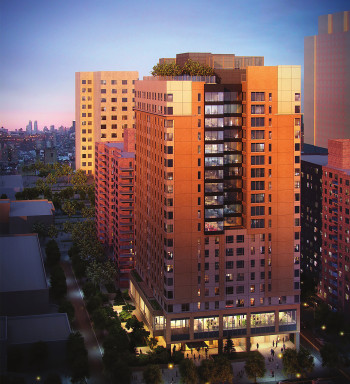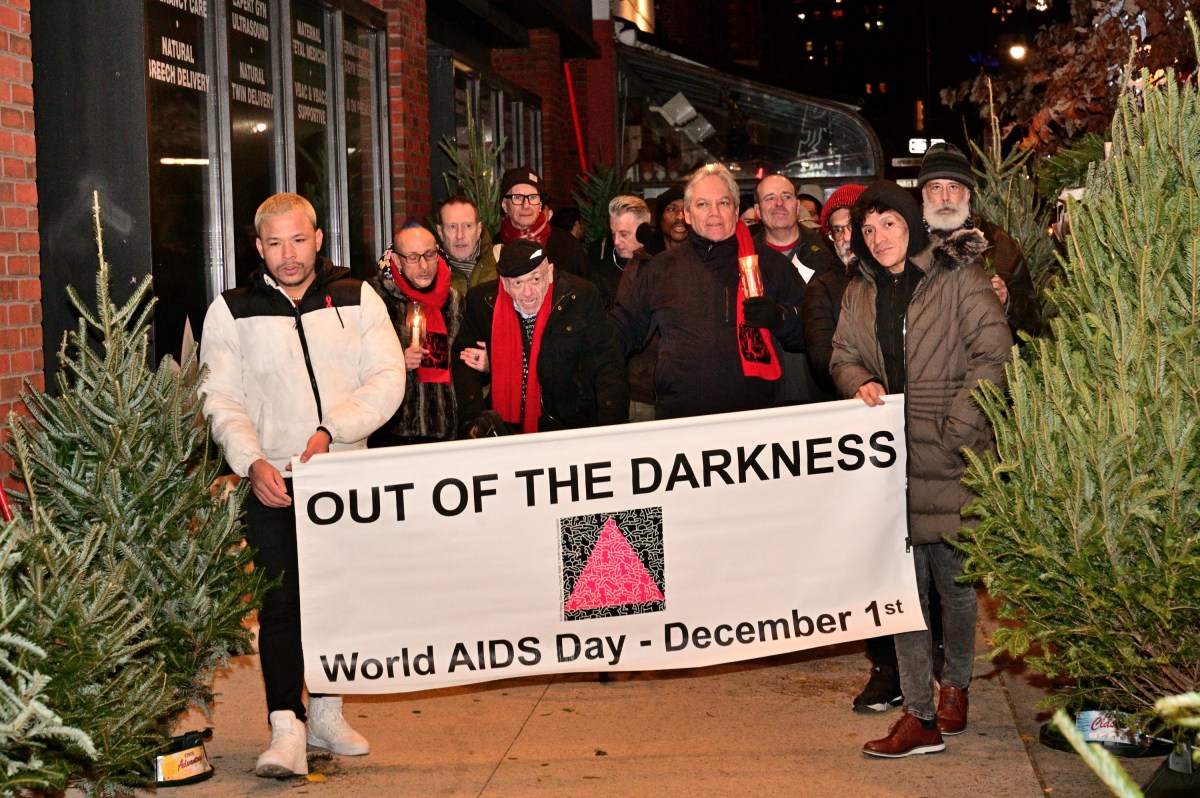
BY JACKSON CHEN | A ruling by a Manhattan State Supreme Court judge will require the New York State Department of Health (DOH) to take a harder look at the potential hazardous materials and noise that would be produced from a nonprofit agency’s proposed development on the Upper West Side.
Jewish Home Lifecare, a nonprofit nursing home organization with a Manhattan campus at 120 West 106th Street, has been looking to replace its aging facility since 2006. After a land swap offer, JHL set its sights on building a 20-story nursing home on West 97th Street that would accommodate 414 beds — 100 less than the current facility.
Throughout the years, parents of students at P.S. 163 — a roughly 600-student K-5 school adjacent to the proposed site — and neighbors have raised concerns about what they see as serious negative impact from the development.
Their opposition resulted in two separate Article 78 proceedings — one from the parents at P.S. 163 and one from a coalition of nine nearby residents — filed this past spring against the DOH’s approval of the nursing home project.
On December 9, Judge Joan Lobis issued a combined judgment on the two Article 78s. While Lobis said most of the issues raised in the lawsuits had been reviewed appropriately, she found that the DOH and JHL’s team did not take the “requisite hard look” at the impact of noise and hazardous materials
Lobis’ ruling “vacated and annulled” the department’s approval, which will require the DOH and JHL to complete an amended environmental impact statement. According to a JHL statement, the organization is considering whether to file an appeal or go ahead and comply with Lobis’ ruling.
The organization said the environmental impact review could be completed in a relatively short time since it is only required to supplement its earlier EIS, instead of carrying out a completely new one. Either way, JHL said the previously targeted construction start date of summer 2016 would not be significantly delayed.
As for the neighbors and parents, the ruling was welcomed as a huge victory. According to Martin Rosenblatt, a neighbor opposed to the project but not listed in the suits, either route JHL takes will cause some delays for the project.
For Rosenblatt, the main issue stems from evidence of lead in the soil and its danger to neighbors. Backing up his claims, Rosenblatt said he hired an expert to test the lot’s soil for lead, and that the expert found alarming rates of the toxins in samples taken.
“There are children in the neighborhood that are under five, they don’t have double-paned windows,” Rosenblatt said of the potential dangers. “Neither do the seniors.”
In addition to allegations of hazardous materials, opponents of the project have also focused on the amount of noise it will entail and what they say would be negative effects on the schoolchildren’s learning. According to the suit filed by parents, the construction would prove harmful to all the students, but particularly to the 7.5 percent of them who have asthma and the 14 percent with learning disabilities.
Rene Kathawala, the attorney representing the parents at P.S. 163, said the developers needed to provide more mitigation efforts for the safety and well-being of the students.
“If you can’t your hear your teacher, you’re not going to be able to learn,” Kathawala said. “There’s also the issue if young children see big cranes and equipment, that’s very distracting.”
Kathawala, also a P.S. 163 parent, said the developers should have agreed to outfit the school with noise-attenuating windows to mitigate the noise. Since the windows would be closed for so long, Kathawala said, central air conditioning should also be installed in the school to provide needed fresh air.
He said that even as opponents aim to make sure JHL only moves forward without adversely affecting the school, they would prefer the alternative option of JHL renovating its deteriorating campus at West 106th Street.
“We have never understood why they’re spending millions of dollars and years to build next to a school when there’s a great place to build a proper, efficient, new nursing home,” Kathawala said of the current JHL campus.
Cathy Unsino, a neighbor of the development site and a nursing home reform advocate, said the better option would be creating two interconnected eight-story wings with ground floor public space at the West 106th Street facility.
She said the proposed 20-story high-rise would create problems of isolation for residents and cause delays for first responders reaching them. Alternatively, her dual eight-story buildings proposal would be more suited for the elderly community, Unsino said.
According to JHL, the proposed development would be built on a what is known as a “Green House model” that provides seniors with a “genuine home environment characterized by greater privacy, autonomy, and dignity.”
JHL made clear that whether or not it appeals Judge Lobis’ ruling, it intends to move forward with building at the West 97th Street location.







































